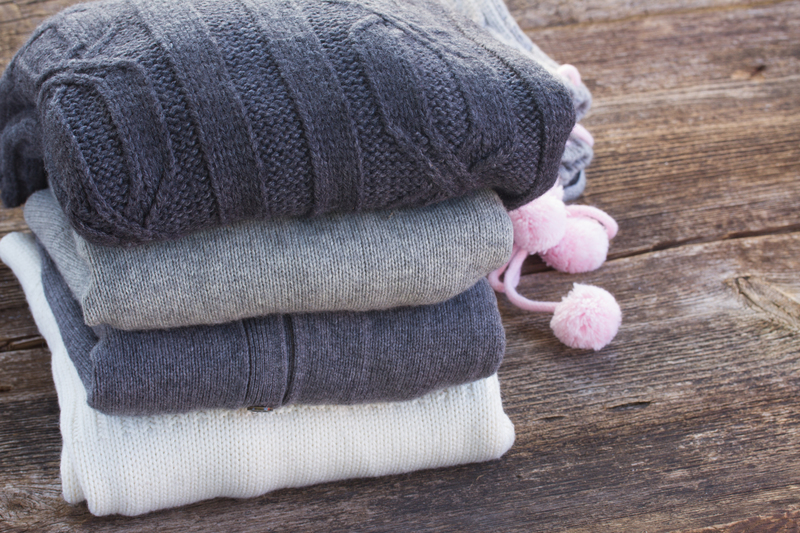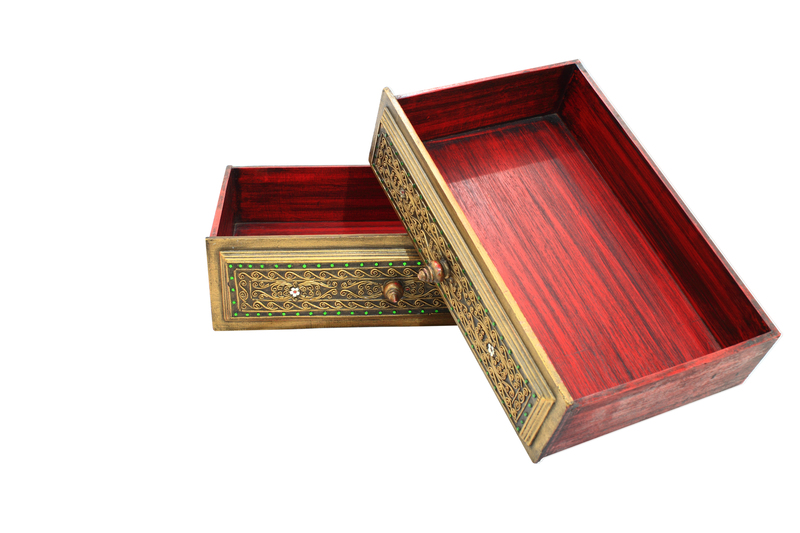Effortless Ways to Dispose of Your Plant Pots
Disposing of unused or broken plant pots can be a source of confusion for gardeners and plant enthusiasts alike. With sustainability and eco-friendliness becoming more important than ever, understanding the most efficient and responsible ways to get rid of old flower pots, planters, and containers is essential. In this in-depth guide, discover numerous effortless methods to dispose of your plant pots that are not only convenient but also environmentally considerate.
Why Disposing of Plant Pots Properly Matters
It's tempting to toss your old plant pots in the trash, but disposing of plant pots properly helps reduce landfill waste, recycles valuable materials, and even benefits your local gardening community. With millions of gardeners repotting plants each season, taking the right steps can make a genuine difference to the environment.

Understanding Types of Plant Pots and Their Disposal Options
Not all plant pots are created equal. Before you figure out how to dispose of your plant pots effortlessly, you first need to understand what they're made from. Here are the main types:
- Plastic pots (including polypropylene and polystyrene)
- Terracotta or clay pots
- Ceramic plant pots
- Biodegradable and compostable pots
- Metal containers
- Wooden planters
Why Differentiate?
Different materials call for different disposal methods. Efficiently disposing of plant containers means you need to know whether you can recycle, repurpose, compost, or need to special handle your pots.
Effortless Ways to Dispose of Plastic Plant Pots
Plastic plant pots are by far the most common. Many gardeners accumulate stacks of them each season. Here's how to get rid of them easily and responsibly:
1. Recycle at Local Garden Centers
- A growing number of garden centers and nurseries offer plastic pot recycling programs.
- These facilities either reuse or recycle the pots, keeping them out of landfills.
- Look for designated drop-off bins during spring and early summer.
- Tip: Wash the pots free of soil and labels before dropping them off to streamline processing.
2. Municipal Recycling Programs
- Some towns and cities now accept plant pots that are #2 or #5 plastic in curbside blue bins.
- Check your local council's recycling guide to confirm if plastic pots are accepted.
- Remove metal hangers or non-plastic parts that could contaminate recycling streams.
3. Give Them Away Online
- Post gently used pots on neighborhood social media groups, Craigslist, Freecycle, or Facebook Marketplace.
- Gardeners, schools, and community groups are often eager for free growing containers.
- Bundle different sizes for easy pickup. This is among the quickest ways to clear your collection.
4. Upcycle for Household and Garden Use
- Repurpose single-use plastic pots into:
- Seed starters
- Storage containers for garage or shed
- Organizers for craft supplies, nails, or small tools
- Watering scoops or cup scoops for fertilizer
- Let children paint or decorate old pots for crafts and gifts.
- This not only prevents landfill waste but sparks creativity in your home.
How to Dispose of Terracotta and Clay Pots Without Hassle
Terracotta and clay pots are natural materials, but disposing of them properly is still important--especially if they are broken. Here are eco-friendly methods to dispose of clay plant pots:
1. Crush and Use as Mulch or Drainage
- Broken clay pots can be smashed and added to garden beds as mulch or drainage layers in new pots.
- The shards help aerate soil and suppress weeds.
- Simply wear gloves and use a hammer to break them into manageable pieces.
2. Donate Intact Pots
- Many community gardens, schools, local artists, or community art centers appreciate donations of terra cotta pots for projects.
- Contact your local extension office or garden clubs to inquire about pot drives or donations.
3. Upcycle in Your Garden
- Turn them upside-down as garden cloches to protect tender plants from frost.
- Use them as decorative edging for flowerbeds.
- Drill holes in sides to create insect habitats or bee hotels.
Best Practice for Disposing of Ceramic Plant Pots
Ceramic pots add style to homes and gardens but can be troublesome to dispose of due to glazes and mixed materials. Here's how you can dispose of ceramic plant containers easily:
1. Repurpose as Indoor Storage
- Use cleaned ceramic pots as caddies for kitchen utensils or bathroom toiletries.
- Turn chipped pots into colorful planters for non-edible houseplants.
2. Offer Free to Others
- List pots on free-to-take boards, especially for large decorative planters that may interest others for upcycling or crafts.
- Even cracked ceramic pots can be used for mosaic art projects.
3. Disposal at Specialized Facilities
- Ceramic can't be recycled curbside but might be accepted at construction and demolition recycling centers.
- Call ahead to check if your local facility accepts glazed ceramics.
Biodegradable and Compostable Pots: The Simplest Disposal
Biodegradable pots, such as those made from coconut coir, peat, compressed paper, or cow manure, are the easiest to dispose of responsibly:
- These pots break down naturally in your compost heap or garden bed.
- When repotting, place directly into the ground where they will decompose over time.
- If pots are not visibly contaminated with chemicals, toss them in your municipal composting bin.
Tip: Always remove any non-compostable labels or plastic wrap before disposal.
Metal and Wooden Planters: Easy Ways to Repurpose or Recycle
Metal pots and wooden planters are sturdy and reusable but will eventually outlive their original use. Consider these easy disposal solutions:
Metal Plant Pots
- Recycle at metal recycling centers: Remove all non-metal parts and drop off at your nearest scrap metal facility.
- Paint and reuse as rustic planters, tool holders, or creative yard art.
- Offer them to schools or artists for sculpture or science projects.
Wooden Planters
- If untreated, break them down and add to a compost heap or garden as mulch.
- Older planters can be cut and repurposed into birdhouses or garden markers.
- For treated wood, check with your municipality for proper disposal instructions to avoid soil contamination.
General Tips for Hassle-Free Plant Pot Disposal
Whether your plant pots are made of plastic, clay, ceramic, metal, or wood, these additional tips make getting rid of used plant containers simpler:
- Always clean and dry pots before recycling or donation to prevent the transfer of pests or pathogens.
- Consider organizing a neighborhood plant pot swap where gardeners can exchange sizes and styles.
- Contact local artists, schools, or urban farms for bulk donations -- many have regular needs for plant pots, especially in spring.
- Check for special collection days at your municipality -- some host "hard-to-recycle events" throughout the year.
What Not to Do: Disposal Methods to Avoid
Sometimes, not disposing of plant pots correctly can cause more harm than good. Avoid these common mistakes to help the environment:
- Don't burn plastic or ceramic pots - this releases harmful toxins into the air.
- Don't put plastic or ceramic pots in general landfill bins unless there's absolutely no recycling or donation option.
- Never toss large quantities of untreated wooden planter boxes with treated timber into compost - chemicals can leach into your soil.
Benefits of Disposing Plant Pots Sustainably
Effortless plant pot disposal isn't just about convenience. By rehoming or recycling your unused pots:
- You support a circular economy where materials are reused rather than wasted.
- You help community organizations and schools access free gardening containers.
- You reduce clutter in your garage, garden shed, or backyard.
- You contribute to local green initiatives and foster a culture of giving within your neighborhood.

Frequently Asked Questions About Disposing of Plant Pots
Can I put plastic plant pots in my regular recycling bin?
It depends on your local recycling service. Many now accept hard plastics like #2 and #5, but check your municipality's guidelines since some programs do not accept black plastic or pots with residual soil.
Are biodegradable pots safe to compost?
Absolutely! Most biodegradable pots made from materials like coir, peat, or paper break down effectively in compost piles or garden beds. Avoid composting pots with plastic coatings or non-organic additives.
Where can I donate unused plant pots?
Try:
- Local gardens and farms
- Schools and community centers
- Non-profit organizations and food banks
- Online community groups and neighborhood networks
What do I do with chipped or broken ceramic pots?
Use shards as garden bed mulch, drainage for larger pots, or try mosaic crafts. Dispose of non-reusable pieces at a dedicated construction waste facility rather than a regular bin.
Conclusion: Make Plant Pot Disposal Painless and Planet-Friendly
With a little effort--often less than you might imagine--you can get rid of old plant pots effortlessly while minimizing environmental impact. By sorting your pots based on material and choosing from the wide range of eco-friendly disposal options outlined in this article, you not only keep your space organized but also contribute positively to your community and the planet.
Whether you're recycling, donating, upcycling, composting, or creatively repurposing your garden containers, every small action helps build a sustainable world. Next time you refresh your plant collection, revisit these effortless ways to dispose of your plant pots and make responsible choices that benefit everyone.
- Recycle plastic pots at local garden centers or municipal programs.
- Donate or upcycle clay, ceramic, metal, or wooden planters.
- Compost biodegradable pots without worry.
- Avoid landfills whenever possible.
Happy gardening, and may your plant pot disposal be as effortless as tending to your favorite blooms!